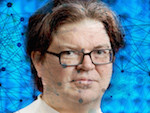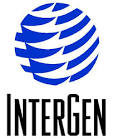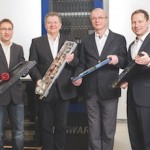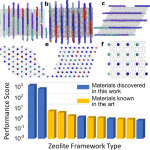In this RCE Podcast, Brock Palen and Jeff Squyres speak with Jonathan Dursi about his recent editorial entitled HPC is dying, and MPI is killing it. The article that spawned a lot of attention in good discussion for our community.
Archives for April 2015
Multi-GPU Cluster to Power Deep Learning Research at NYU
Over at the Nvidia Blog, Kimberly Powell writes that New York University has just installed a new computing system for next generation deep learning research. Called “ScaLeNet,” the eight-node Cirrascale cluster is powered by 64 Nvidia Tesla K80 dual-GPU accelerators.
EOFS Elects HP’s Frank Baetke as Chairman
Frank Baetke was recently elected by the EOFS Board to serve as the new chairman of the European Open File System organization.
Job of the Week: HPC Administrator in Hilton Head, South Carolina
The Intergen Group in Hilton Head, South Carolina is seeking an HPC Administrator in our Job of the Week.
Interview: MEGWARE Gears up for ISC High Performance
MEGWARE in Germany celebrated its 25th anniversary in February. With the company in the midst of a big cluster deployment at CERN, we caught up Jörg Heydemüller from MEGWARE to learn what they have in store for the upcoming ISC High Performance conference in July.
Supercomputing New Materials for Improved Fuel Production
Researchers are using the Mira supercomputer at Argonne to accelerate the discovery of new materials for improved biofuel and petroleum production.
SOSCIP in Canada Announces $20M Research Investment
Today the Southern Ontario Smart Computing Innovation Platform (SOSCIP) announced a $20 Million investment to add new areas of focus—such as advanced manufacturing and cybersecurity—to its research projects.
Hornet and SuperMUC to Provide 247 Million Core Hours for Scientific Research
The Gauss Centre for Supercomputing (GCS) reports that the 10th PRACE Regular Call for Proposals resulted in GCS supporting 14 outstanding scientific research projects from eight European countries. A total of 246.93 million core hours of computing time were awarded on GCS supercomputers, including Hornet at HLRS and SuperMUC at LRZ.
Video: Intelligent Cache Hinting in Lustre
“Data caching can provide increased performance when using a mix of high and low performance storage, but traditional replacement algorithms like LRU may evict important data in multi-tenant environments, or in situations where the cache is “cold”. By tagging and prioritizing data within the storage system, we can create a more intelligent mechanism that avoids many of the problems inherent to traditional caching. Methods for prioritizing data and passing this information through the filesystem will be discussed, as well as a performance analysis of small file IO in Lustre with cache hinting, and possible future enhancements.”
Optalysys Develops Prototype Optical Processing System
Today Optalysys announced that the company has successfully developed a demonstrable prototype that can process mathematical functions optically in a scaleable, lensless design. According to the company, Optalysys optical processing systems will “turbo-charge” existing computers by performing processor-intensive tasks at much faster rates and with a significant reduction in energy consumption.













